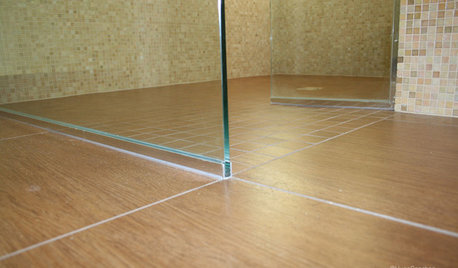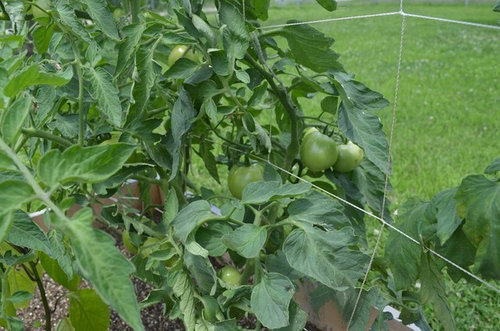Differences between determinate and indeterminate
organic_flutterby
9 years ago
Related Stories

KITCHEN DESIGNDetermine the Right Appliance Layout for Your Kitchen
Kitchen work triangle got you running around in circles? Boiling over about where to put the range? This guide is for you
Full Story
HOUZZ TOURSMy Houzz: A Country Home Built on Dreams and Determination
Meaningful antiques mix with new pieces in a family’s just-built house on a former strawberry farm in Oregon
Full Story
TILEEpoxy vs. Cement Grout — What's the Difference?
Grout is grout, right? Nope. Cement and epoxy versions have different appearances, durability and rules of installation
Full Story
MOST POPULARSee the Difference a New Back Deck Can Make
A dramatic 2-story porch becomes the centerpiece of this Ohio family’s renovated landscape
Full Story
DECORATING GUIDESStaging vs. Decorating: What's the Difference?
Unlike decorating, staging your home isn't about personal style — it's about creating ambiance and appeal for buyers
Full Story
ROOTS OF STYLEArt Deco, Art Nouveau, Arts and Crafts: What’s the Difference?
If the zigzag and swirly designs of the past leave your head spinning, these descriptions will straighten you right out
Full Story
DECORATING GUIDESSingle Design Moves That Make All the Difference
One good turn deserves a whole ideabook — check out these exceptional lone moves that make the room
Full Story
RUGSKilim, Flokati, Beni Ourain, Boucherouite: What’s the Difference?
Get the global story you want for your floors by learning the origins and characteristics of rugs from around the world
Full Story
BATHTUBS8 Beautifully Different Tub Materials for Bath-Time Luxury
Elevate your bathroom — and your bathing experience — with a tub that feels like an indulgence
Full Story
DECORATING GUIDESChaise, Divan, Daybed, Settee: What's the Difference?
Seeking the right furniture piece for lounging, sitting or even snoozing? We clear up the confusion in terms
Full StorySponsored
More Discussions







digdirt2
organic_flutterbyOriginal Author
Related Professionals
Manhattan Beach Landscape Architects & Landscape Designers · Concord Landscape Contractors · Cornelius Landscape Contractors · Lemont Landscape Contractors · Lemoore Landscape Contractors · Tacoma Landscape Contractors · Eagan General Contractors · Anderson General Contractors · Franklin General Contractors · Green Bay General Contractors · Hercules General Contractors · Towson General Contractors · Fort Myers Decks, Patios & Outdoor Enclosures · Grain Valley Decks, Patios & Outdoor Enclosures · Jeffersonville Decks, Patios & Outdoor Enclosuresseysonn
digdirt2
seysonn
carolyn137